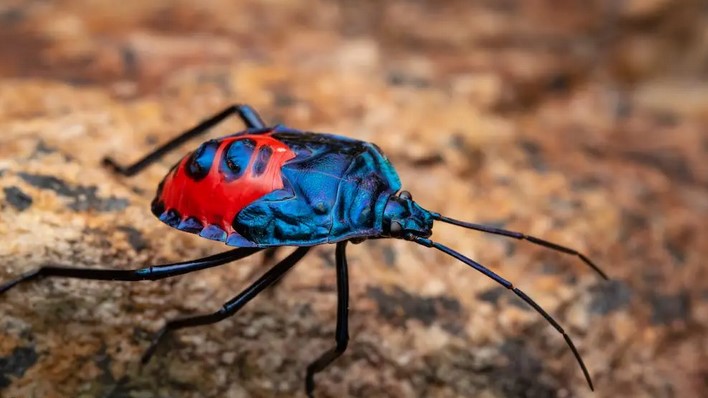
Thailand is a top destination for travelers seeking exotic adventures, rich culture, and stunning landscapes. From its tropical beaches to bustling night markets and lush rainforests, the country offers something for everyone. However, one aspect that often surprises visitors—especially those unaccustomed to tropical climates—is the abundance and variety of insects. Bugs in Thailand are a natural part of the environment, and while most are harmless, understanding which insects to expect, how to handle encounters, and how to protect yourself is key to enjoying your stay without discomfort.
1. Common Insects Travelers May Encounter
Thailand’s tropical climate, especially during the rainy season (May to October), provides an ideal environment for insect life. From buzzing mosquitoes to brightly colored beetles, the diversity is immense. While many insects are benign, some are worth noting for practical reasons such as health and comfort.
Mosquitoes
Perhaps the most common and concerning insect is the mosquito. Thailand is home to species that can carry dengue fever, malaria, and Zika virus, particularly in rural or forested areas. Cities like Bangkok generally pose a lower risk, but bites can still be a nuisance. It’s wise to use insect repellent (DEET-based or natural alternatives), wear long-sleeved clothing in the evenings, and sleep under mosquito nets when necessary.
Ants and Termites
Ants are widespread in Thailand and range from tiny sugar ants to larger, more aggressive species. While most are harmless, some can bite if provoked. Termites are also common, especially in wooden structures. Lodges and eco-resorts often take preventive measures, but it’s good to be aware of these critters.
Cockroaches
Urban areas may have cockroaches, particularly in drains and alleyways. Though they’re not dangerous, they can be startling. Keep food sealed and dispose of waste properly to avoid attracting them.
Centipedes and Millipedes
Thailand hosts a variety of crawling arthropods, including centipedes which can deliver a painful bite. These are more common in forested or rural areas and typically avoid human contact. Wearing closed shoes and checking footwear before use is advisable in certain regions.
Geckos and Spiders
While technically not insects, small lizards like geckos are frequently seen indoors and actually help by eating mosquitoes and other bugs. Spiders in Thailand range from harmless house spiders to more intimidating varieties in rural regions, but bites are extremely rare.
2. Cultural and Culinary Aspects of Insects in Thailand
Thailand’s relationship with insects goes beyond pest control. In fact, bugs play a significant role in local diets and are considered a delicacy in many regions.
Street vendors in cities like Bangkok and Chiang Mai often sell fried insects such as crickets, silkworms, bamboo worms, and grasshoppers. These are typically seasoned and deep-fried to a crunchy texture. Tourists are frequently intrigued by this culinary curiosity, and while it may seem unconventional, insects are high in protein, low in fat, and environmentally sustainable.
Local markets sometimes display these edible insects as part of the broader street food experience, inviting tourists to challenge their palates and try something new. Some high-end restaurants have even begun incorporating insects into gourmet dishes as part of Thailand’s progressive food culture.
Subheading: How to Prevent and Handle Insect Encounters
To ensure a smooth and bug-free experience, especially during nature excursions or extended stays, here are a few essential tips:
- Use insect repellent: Products containing DEET, picaridin, or lemon eucalyptus oil are effective. Reapply regularly, especially after swimming or sweating.
- Wear appropriate clothing: Long sleeves, pants, and socks offer better protection during treks or nighttime activities.
- Sleep safely: Use mosquito nets if staying in rural or open-air accommodations. Many guesthouses also provide them.
- Avoid stagnant water: Mosquitoes breed in still water, so avoid areas with uncovered water containers or puddles.
- Check accommodations: When checking into a room, examine corners and under beds or bathroom fixtures for pests. If something seems off, inform the staff immediately.
- Pack smart: Bring antihistamines or bite creams in case of allergic reactions or irritation from bites. A small first-aid kit can be helpful for any unexpected run-ins with wildlife.
3. Wildlife Encounters Beyond Bugs
Insects are just one part of Thailand’s broader wildlife experience. The country is also home to monkeys, elephants, snakes, and a rich variety of birds. In national parks and remote islands, it’s common to encounter wildlife in its natural habitat.
Ethical tourism is crucial when engaging with wildlife. For instance, visiting sanctuaries that do not allow elephant rides and instead focus on conservation is strongly encouraged. Similarly, interacting with monkeys in temple areas should be done cautiously—they may seem friendly but can become aggressive if provoked or fed improperly.
Snakes, including cobras and pythons, exist in Thailand’s wilder regions, but they are rarely seen unless you venture deep into the jungle. Guided treks with trained professionals help minimize risks while maximizing the chance of seeing unique flora and fauna.
In summary, while bugs in Thailand are an inevitable part of traveling through a tropical country, they shouldn’t deter you from exploring the natural and cultural wonders this destination has to offer. With the right precautions, awareness, and a respectful attitude toward nature, most travelers can enjoy a comfortable and memorable trip. In fact, some insects—whether seen in the wild or sampled as local cuisine—can become an unexpected and fascinating part of your adventure. Understanding and coexisting with the insects and wildlife of Thailand will enrich your journey and offer a deeper appreciation for the biodiversity of the Land of Smiles.